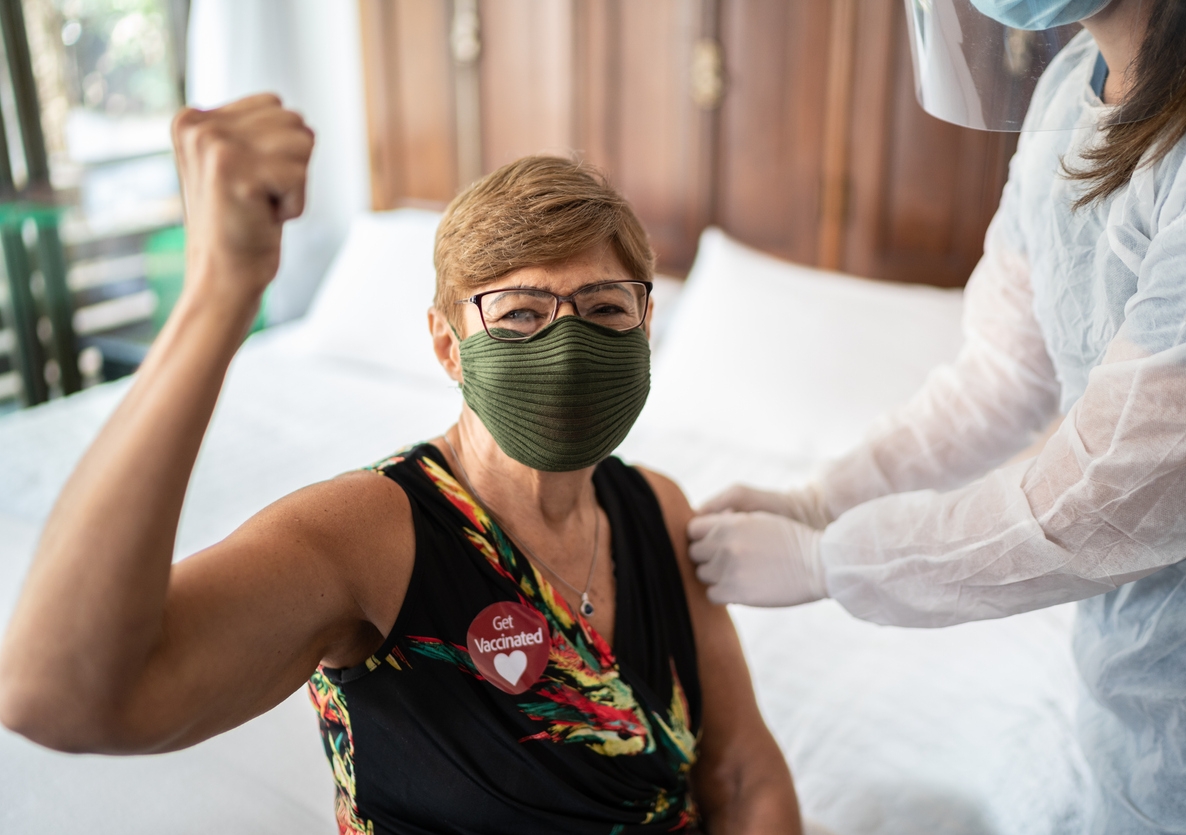The power of peer-to-peer communication in the COVID-19 vaccine rollout: study
During the COVID-19 pandemic, discussions with peers played a large role in people’s decisions around vaccination, new research from UNSW Sydney shows.
During the COVID-19 pandemic, discussions with peers played a large role in people’s decisions around vaccination, new research from UNSW Sydney shows.

When COVID-19 vaccines became available in Australia, there was a flood of education and promotional campaigns encouraging people to get vaccinated. But these messages from government and healthcare providers travelled slowly through some communities and didn’t always resonate. This contributed to vaccine hesitancy in some people.
A new study from UNSW, published in Health Expectations, opens in a new window, explored the role of peer-to-peer communication in the Australian COVID-19 vaccine rollout.
“Information about health is almost always top down – so received from government agencies, health agencies and your doctor,” said Joshua Karras, the lead author of the study, who is a PhD candidate in the School of Population Health at UNSW Medicine & Health.
“But peer to peer communication is when information is received from a friend, family member or other equal – a trusted source. So it can be quite powerful.”
The study involved in-depth virtual interviews with 41 Australian adults during September 2021. There were participants from every Australian state and territory, some of whom were still subject to lockdown restrictions. Thirty three participants self-identified as being vaccinated against COVID-19, while the remainder were not vaccinated.
“We wanted to find out how peer-to-peer communication influences individuals to make decisions about vaccines,” Mr Karras said. “We also wanted to find out what the effect of being vaccinated has on the individual’s capacity and motivations to speak about vaccines.”
During the interviews with COVID-19 vaccinated participants, several common themes emerged. Firstly, peer-to-peer communication was important, contributing to decisions about vaccination along with official health messaging. The more impactful peer-to-peer communication was with family and friends who held a strong, close relationship with the individual.
Also, once the participants received the COVID-19 vaccine, they felt empowered to endorse the vaccine due to their personal experience. This sometimes translated to more conversations with those around them about COVID-19 vaccination.
“After receiving the vaccine, people are more likely to become champions of it,” Mr Karras said.
On the other hand, unvaccinated participants believed that peer-to-peer communication was not as important. They mentioned a desire not to be one of the many who were influenced by others.
Peer-to-peer communication appears to have an important role in COVID-19 vaccine uptake, but what does this mean for our communities?
If positive peer-to-peer communication is supported, this could lead to increased vaccine awareness and confidence.
“Best case scenario, we are able to design programs to help everyday individuals to share information about health interventions,” Mr Karras said. “We could support them to communicate with their loved ones and help keep them safe and healthy.”
Read more: 10 Minute Genius: Holly Seale on communicating in a pandemic
For example, when an individual receives a vaccine, they could also receive extra information about that vaccine and some communication training.
“We’re looking to understand how we can harness peer-to-peer communication – how it could help to improve immunisation uptake,” Mr Karras said.
“This concept could also potentially be applied to other areas of health intervention, not just vaccines.”